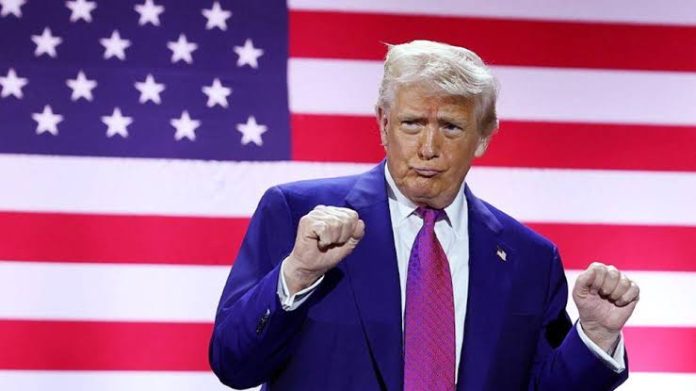President Donald Trump has issued a stern warning to countries engaging with the BRICS alliance, stating they will face an additional 10% tariff on exports to the United States if they support policies that counter American interests.
The move marks the latest escalation in Trump’s protectionist trade strategy, reigniting concerns about global economic fragmentation.
The warning, posted on Trump’s social media account, was directed at countries he claims are “aligning with anti-American policies” promoted by the BRICS bloc, which includes China, Russia, and a growing list of emerging powers.
With the bloc recently expanding to incorporate countries like Saudi Arabia, Egypt, and Indonesia, Trump’s message signals a broader pushback against what he views as a rising geopolitical rival.
US officials have confirmed that the tariffs will come into effect on August 1, following a short grace period after a previously announced July 9 deadline for countries to reach trade terms with Washington. So far, only the UK and Vietnam have signed preliminary agreements with the US, although unresolved disputes like tariffs on British steel continue to stall full deals.
The renewed threat coincides with a BRICS summit in Brazil, where member nations publicly criticized US tariffs, warning they introduce “uncertainty” to global trade. The bloc’s finance ministers also called for reforms to global financial institutions like the IMF and emphasized the need for more equitable currency valuations statements that appear to have triggered the White House’s retaliatory stance.
Trump’s administration has leaned heavily on tariffs since his return to office in January, with policies framed as measures to protect American manufacturing. In April, he unveiled sweeping tariffs under what he dubbed “Liberation Day,” though he paused the harshest components to allow for three months of negotiations now drawing to a close.
Experts caution that a shift away from trading with BRICS members, particularly China, could prove difficult for many countries. “There are no viable alternatives in key industries like electric vehicles and rare earth materials,” said Andrew Wilson of the International Chamber of Commerce.




